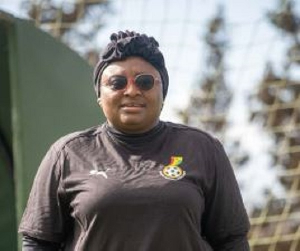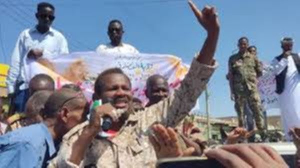The Chief Imam of Bole in the newly created Savannah Region, Mohammed Sulemana Iddrisu, has praised on President Akufo-Addo's Government for the numerous projects it had undertaken in the area since assuming office.
He said the various projects and the pace they were being delivered was unprecedented in the annals of Bole and its surrounding communities.
“The people of Bole cannot thank the Government enough for all the things they have done in this short period that they have been in charge, and we pray that Allah will continue to be with them to do even more for Ghana,” he said.
Mohammed Iddrisu said this at a durbar in honour of Vice President Dr Mahamudu Bawumia in Bole when he joined Muslims in the Savannah Region as part of his nationwide Ramadan tour.
Mohammed Iddrisu enumerated some of the projects being implemented by the Akufo-Addo government including the Planting for Food and Jobs, One Village, One Dam, One District, One Factory, Free Senior High School and provision of educational infrastructure.
He urged Ghanaians to support the Government's development efforts to rapidly develop the nation, indicating that greater support would speed up the pace of implementation.
The Bole District has enjoyed major infrastructure developments in the past two and a half years since the NPP assumed the reign of office.
Some of the projects included markets (Mankunah, Tinga and Mandari); lorry park (Bamboi); three classroom blocks with toilets (Kpenayiri and Daboyiri); and a dining hall for Saint Anthony of Padua School.
Other were two dams (Teslima and Chibriyor) under the One Village, One Dam programme; an eight-acre prayer area for Muslims; construction and spot improvements of several key roads; and construction of a warehouse at Bole under the One District One Warehouse project.
The Bole District was the first of five districts in the country to start the Planting for Export and Rural Development programme, a decentralised under the National Tree Crop Programme, to promote rural economic growth and improve household incomes of rural farmers through the provision of certified improved seedlings, extension services, business support and regulatory mechanisms.
Politics of Tuesday, 4 June 2019
Source: ghananewsagency.org

















